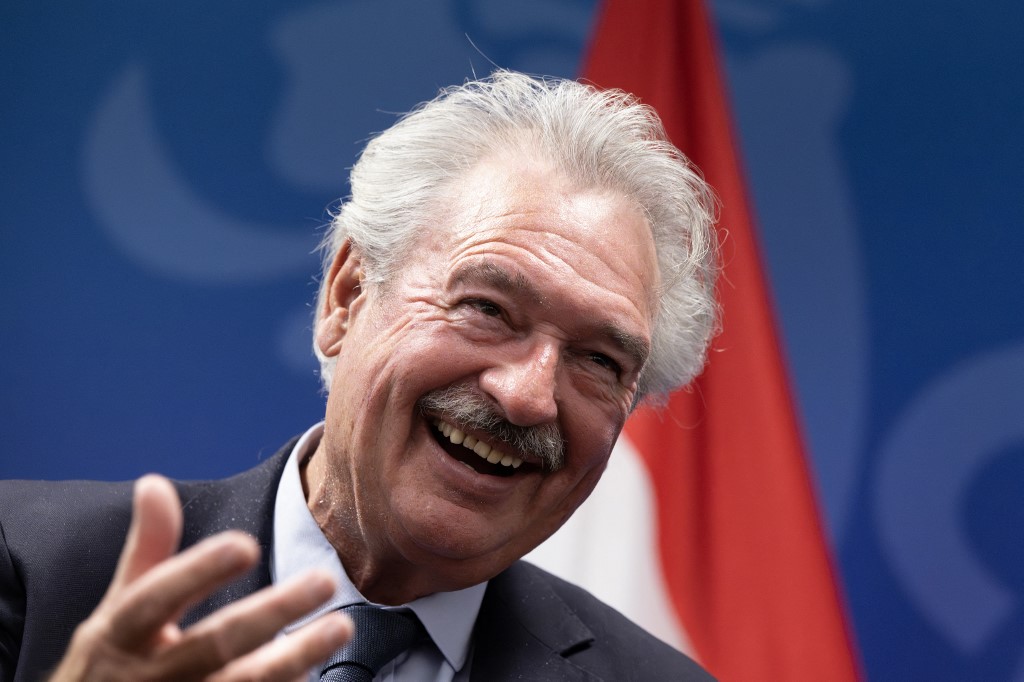 Have the article read by OpenAI (Beta). Please note that AI translations may take some time to process.
Have the article read by OpenAI (Beta). Please note that AI translations may take some time to process.Brussels to extend the authorisation to sell glyphosate in the EU by 10 years
Brussels (STA) – After the EU member states again failed to adopt a position on the European Commission’s proposal to extend the authorisation for the sale of the herbicide glyphosate in the Union by ten years, Brussels has announced that it will extend the authorisation.
The Commission’s proposal to extend the authorisation for the sale of glyphosate in the EU until the end of 2033 failed for the second time to receive a qualified majority in a vote by member states – which means support from at least 15 of the 27 member states, which together represent at least 65 percent of the EU’s total population. There was also no qualified majority against the proposal.
Under EU law, the European Commission must make a final decision by 15 December, when the extension expires. They announced that the authorisation would be extended for ten years, subject to certain conditions and restrictions.
Slovenia supported the proposal, as it did in the October vote. As explained by the country’s Ministry of Agriculture at the time of the first vote, the proposal is in line with the Slovenian government’s position.
The Slovenian government favours a ban on the use of glyphosate with an appropriate adjustment period for agriculture. According to the government, the sale and use of glyphosate should be limited to the greatest possible extent, and only be allowed in agriculture, where there are currently no suitable alternative methods. Slovenia would regulate the use of glyphosate, they added. (November 16)
Sánchez says Spain will lead the EU’s change processes in the coming years
Madrid (EFE) – During a parliamentary debate on his inauguration on Wednesday, Spain’s socialist leader Pedro Sánchez said that the EU “will have to make crucial decisions” in the coming years and that “Spain will not be a mere witness to this process”, but “among the countries leading it.”
Sánchez stressed that the member states would have to forge “new ties with other regions, especially with the Maghreb states and Latin America. The EU will have to consolidate their technological and scientific leadership on a global scale, tackle challenges such as migration and the consequences of climate change.”
He said that there would also be “very important debates”, such as the EU enlargement “towards the Western Balkans, Ukraine, Moldova and Georgia”, something that “responds to a moral duty and a geopolitical interest, that will bring more markets, resources and resilience.” Sánchez added that in the future of the European Union there would also be “national challenges”, and it would be necessary to “thoroughly review the functioning of our EU institutions.” (16 November)
Jean Asselborn, a veteran of European diplomacy, leaves the stage

Brussels (AFP) – “Europe is still there!” Jean Asselborn, 74, a leading figure in European diplomacy, leaves his position this week. Despite the crises, upheavals and disappointments, the Luxembourger remains more convinced than ever of the relevance of the European project.
After being at the head of Luxembourg’s diplomacy for about 20 years, and after more than 200 meetings with his European colleagues, he participated in his last “FAC” (meeting of the foreign ministers of the 27) in Brussels on Monday.
“It has to be said that the EU still exists and that is already something. After the financial crisis, we didn’t lose anyone, but after Brexit we said: it’s going to be a disaster, Europe is going to unravel …,“ recalls Asselborn, a socialist known for his outspokenness, in an interview with AFP. (November 14)
This is a compilation of the European coverage of enr news agencies. It is published Tuesdays and Fridays. The content is an editorial selection based on news by the respective agency.
